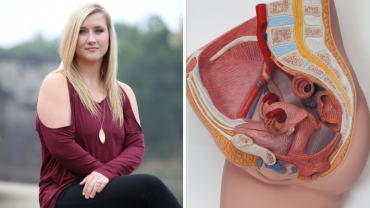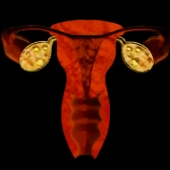What's happening when you're 20 weeks pregnant? Even though your baby is still teensy, just over six inches long and about ten ounces in weight, week 20 is huge. Why? Well, for one thing, you’re halfway through your pregnancy, and baby is halfway ready to meet you! This is also a big week if you’ve been waiting – and waiting and waiting – to find out whether that cantaloupe in your belly is a sweet boy or girl.
The time has come for the big reveal, since a second trimester ultrasound can now deliver the definitive news. Want to keep playing the guessing game? Make sure you tell your practitioner and the ultrasound technician that mum’s the word and that you’d rather they didn’t spill the baby gender beans.
If you’re carrying a girl, her external genitals may not be as prominent as a boy’s (When are they ever?), but they are clearly delineated at this age. And they’re just the tip of the iceberg. Inside your little girl’s body is a fully formed uterus, in miniature. Her tiny ovaries contain the millions of eggs she’ll be born with, and her vagina is beginning to hollow out.
If you’re bearing a boy, the evidence pops up like a flag in a stiff breeze on the ultrasound. Even at this tender age, the family jewels are there for all to admire. Well, one of them anyway. The testicles haven’t descended from the abdomen yet. They’re just waiting for the scrotum to finish construction so they’ll have a home to move into in just a few weeks.
Meanwhile, your baby is starting the process of plumping up, as new fat gets deposited under the skin. Most of the fat is called brown fat and is designed to keep baby warm until your little one’s internal temperature regulatory system kicks into gear after birth. The white fat, the kind that’ll really fill baby up and is responsible for those pinchable cheeks and roly-poly thighs, doesn’t make its appearance in large quantities for a few more weeks. Which means baby will stay slender and somewhat wrinkly for now.
Did You Know?
There is always the risk that pregnant women end up with varicose veins. The American Institute of Preventive Medicine offers the following advice to avoid getting varicose veins: wear elastic support stockings, elevate your legs (above the heart) when resting, and take long & short walks every 45 minutes during long flights or car rides. And finally (obvious for pregnant women) avoid standing for extended periods.
- 80 views













